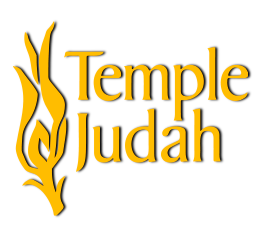Shalom All,
This month we will find ourselves completing one book of Torah, in our regular Torah readings, and then beginning the next one. In particular, we will be moving from the end of the Book of Exodus to the beginning of Leviticus. Exodus is a grand book of Torah. The stories it recounts are epic – Moses and the Plagues of Egypt; Moses and the Ten Commandments; Moses versus the Golden Calf. Even the final story, Moses builds a Tabernacle, is pretty incredible. One need only consider the final vision in this book to feel the grandeur of it, a completed sanctuary visibly filled with the Cloud of God’s glory.
In contrast to this, is the book of Leviticus. Leviticus on the whole, describes in detail the different sacrifices that Aaron and his sons, the priests, oversaw within the Tabernacle itself. It is gory and exact in each description as it depicts a ritual that is wholly foreign to the modern mind. Though, to be fair, the movement away from ritual sacrifice started a long time ago, with the original rabbis of the Talmud. Nevertheless, there is no denying that our people did, at one time, literally offer animal sacrifices in order to feel a connection with the Divine.
Luckily, we are not beholden to literal words of the text, but also understand that there is a metaphorical meaning behind them. In this case, it’s the difference between dreams and reality, between a vision of the future we want to achieve and the actual work, tedious work, that it takes to get there.
Exodus is all about the vision. After being redeemed from slavery our ancestors needed the nearness of a visible connection with God. A pillar of fire at night to lead them, and a pillar of cloud in the day that settled over and even filled the Tabernacle they had built. They are inspired, excited about the future.
Leviticus, however, and to some extent the remainder of the Torah, is about how hard it is to bring such a vision to life. It’ll take a long time and include wandering and sacrifice for years. There will be doubters, and complainers, and obstacles all around.
Yet, in the end, there is a Promised Land. A future for us all. A place under the wings of God that we can achieve when we work together to get there.
Shalom,
Rabbi Todd

